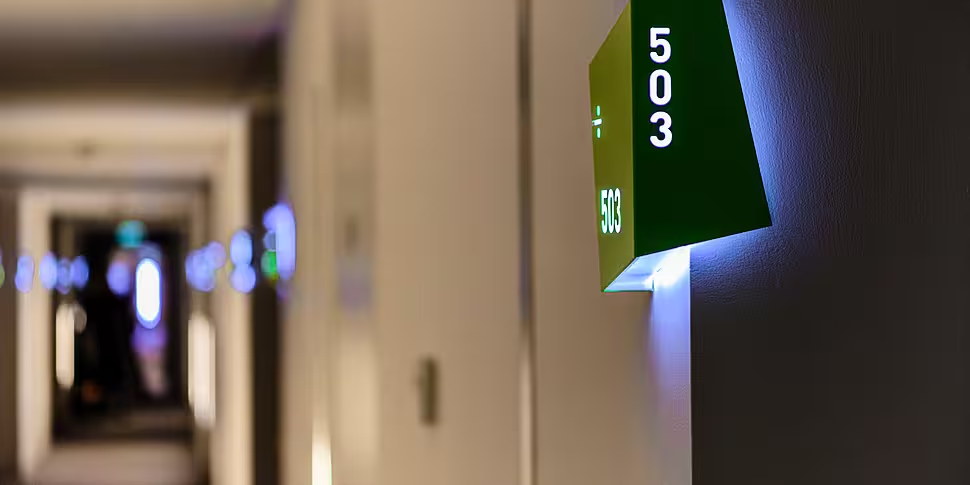The Government needs to explore alternatives rather than housing refugees and asylum seekers in hotels.
Eoghan O'Mara Walsh, Irish Tourism Industry Confederation Chief Executive, was speaking as a major tourism conference takes place in Athlone.
A new strategy for tourism out to 2030 will be unveiled, with suggestions that the sector the could grow by 50% to around €15 billion.
Competitiveness is seen as a big challenge, with rising business costs, squeezed margins and the recently-increased VAT rate in hospitality.
Mr O'Mara Walsh told Newstalk Breakfast supply is also a problem.
"There's huge sort of supply and capacity challenges," he said.
"First among equals is the fact that 20% of all tourism bedrooms around the country are now contracted to [the] Government for humanitarian reasons.
"That's perfectly understandable from a humanitarian perspective, but it does have a profound knock-on impact on the tourism sector.
"All those downstream tourism businesses that we represent - attractions, restaurants, pubs and so on - they're not getting the tourism dollar.
"That's a huge handbrake on growth."
'Huge knock-on impact'
Mr O'Mara Walsh said a key recommendation in the strategy is for a "much more balanced approach to how refugees and asylum seekers are to be housed, and not just be dependent on hotels and guesthouses".
Mr O'Mara Walsh said there should be less hotels offered going forward.
"If you're a regional hotelier and the Government arrive and say, 'Listen will you sign up for 12 or 18 months and we'll guarantee 100% occupancy and we'll pay you' that is a very attractive proposition," he said
"That has a huge knock-on impact on that local tourism economy.
"Our view is that only about 12% of the national hotel stock should be contracted to Government.
"Modular housing, State institutions, vacant buildings, unused dwellings: all the other forms of accommodation really need to be explored," he added.









